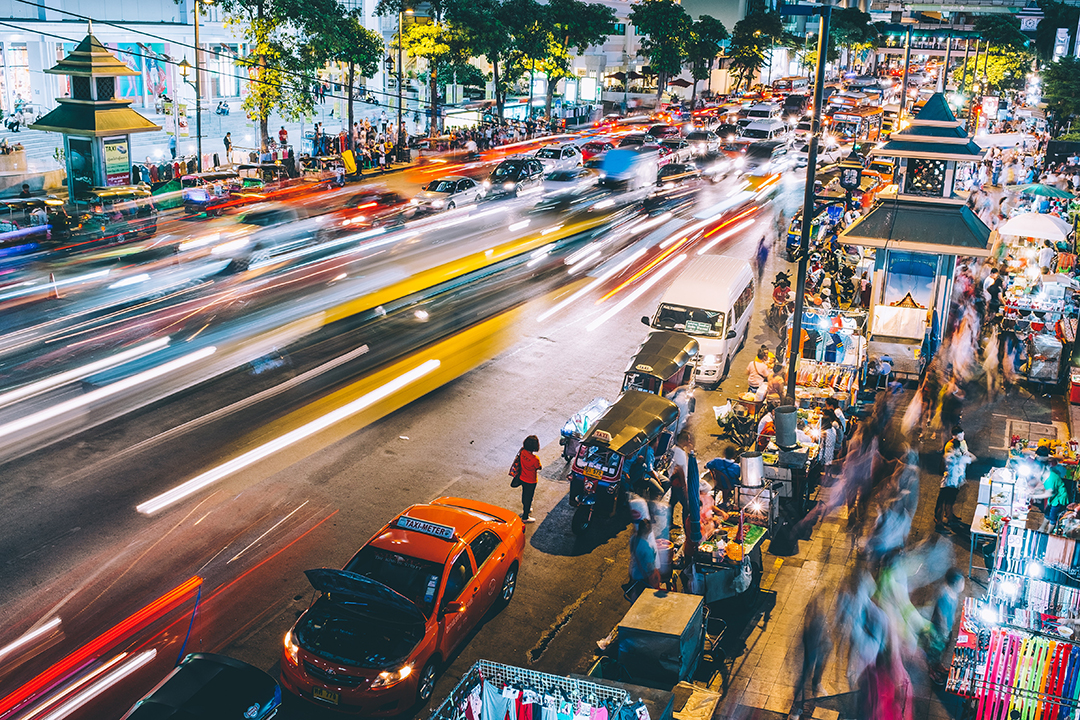28 May 2019: The UN Economic and Social Commission for Asia and the Pacific (ESCAP) released its 2019 progress report on the SDGs during the 75th Commission session. The report finds that Asia and the Pacific will not achieve any of the 17 SDGs by 2030 if the region remains on its current trajectory.
The report titled, ‘Asia and the Pacific SDG Progress Report 2019,’ assesses the region’s progress towards the 17 SDGs and finds that for more than half of the Goals, progress is either heading in the wrong direction or has stagnated. The region’s progress is “deteriorating” on:
- SDG 6 (clean water and sanitation)
- SDG 8 (decent work and economic growth) and
- SDG 12 (responsible consumption and production).
Little progress has been made on SDG 2 (zero hunger), SDG 10 (reduced inequalities), SDG 13 (climate action), SDG 14 (life below water), SDG 15 (life on land) and SDG 16 (peace, justice and strong institutions).
Despite some progress on SDG 7, the declining use of renewable energy could reverse progress in the future.
The report highlights negative trends on many specific SDG targets related to the environment and natural resources. The three SDG indicators that are predicted to regress the most by 2030, compared to 2015, are: hazardous waste generation; reduction in forest areas; and permanent water body extent. Targets related to sustainable food production, populations experiencing water scarcity, the generation and use of renewable energy, the management of chemicals and wastes, and the protection of biodiversity also show negative trends. The authors conclude that progress on many environmental targets will require “a complete turnaround” in the region if they are to be reached.
The Asia-Pacific region has made “some but still insufficient” progress on SDG 1 (end poverty), SDG 3 (good health and well-being), SDG 4 (quality education), SDG 5 (gender equality) and SDG 7 (clean and affordable energy). The report cautions, however, that this progress is “too slow for these Goals to be met by 2030.” As an illustration, the SDG 5 targets show “insufficient progress to achieve gender equality within a dozen years.” The report further cautions that progress on a SDG overall can mask individual target declines within a Goal; for instance, despite some progress on SDG 7, the declining use of renewable energy could reverse progress in the future.
The report also identifies “major differences in progress” between the sub-regions of Asia and the Pacific. East and Northeast Asia is ahead on progress on SDGs 1 and 2. South and Southwest Asia leads other subregions on SDGs 3 and 8. Southeast Asia is the leading subregion on SDGs 4, 7 and 9. North and Central Asia has made the greatest progress on SDGs 6, 10, 12, 13 and 16. The Pacific is ahead in SDGs 5, 11, 15 and 17 (partnerships for the Goals).
Southeast Asia is moving in the wrong direction on SDGs 8, 13 and 16 (peace, justice and strong institutions). South and Southwest Asia has moved backwards on SDGs 6, 12 and 13. East and Northeast Asia needs to reverse trends on SDG 11 (sustainable cities and communities), SDG 13 (climate action) and SDG 15 (life on land). The Pacific subregion is regressing on SDGs 2, 8, 14 and 16. North and Central Asia is regressing on SDGs 5, 8 and 11.
The report identifies the lack of reliable data across all SDGs and in all subregions as “one of the region’s biggest challenges.” Despite an increase in the availability of SDG indicators since 2017, the report finds data gaps for two-thirds of the global SDG indicators. Nearly 25% of all SDG targets for which data are not available relate to the environment. South and Southwest Asia have the best data availability, while the Pacific subregion has the worst. The report suggests that the region should increase its use of alternative data sources, such as surveys, to increase monitoring of SDG progress.
The report recommends that Asia and the Pacific strengthen progress on SDG 17 to support progress across all SDGs. The report also suggests the region strengthen its global partnerships and means of implementation to ensure its countries have the resources need to “finance, target and implement policy solutions.” It cautions that failing to do so “could jeopardize the achievement of all other SDGs.”
ESCAP Executive Secretary Armida Alisjahbana urged action to reverse negative SDG trends. She expressed hope that the report will contribute to targeting the region’s efforts to accelerate progress towards all Goals and to strengthen commitment to improving the quality of data and statistics for measuring progress. Alisjahbana highlighted five critical areas to focus on: strengthening social protection; strengthening resilience to tensions over international trade; tackling environmental degradation; enhancing resilience against disasters; and using the potential of new technologies as a force for good.
The 75th ESCAP session is convening in Bangkok, Thailand, from 27-31 May 2019. [ESCAP Press Release] [Publication: Asia and the Pacific SDG Progress Report 2019] [Publication Webpage] [UN Secretary-General Video Message] [UN News Story on Commission Session]
SDGs
Issues
- Agriculture & Food Security,
- Follow-Up and Review,
- Biodiversity,
- Chemicals & Wastes,
- Climate Change,
- Economics & Investment,
- Energy,
- Renewables,
- Forests & REDD,
- Gender,
- Governance,
- Health,
- Human Settlements & Population,
- Monitoring & Evaluation,
- Oceans & Coasts,
- Poverty Eradication,
- Sustainable Consumption & Production,
- Sustainable Development,
- Water & Sanitation
